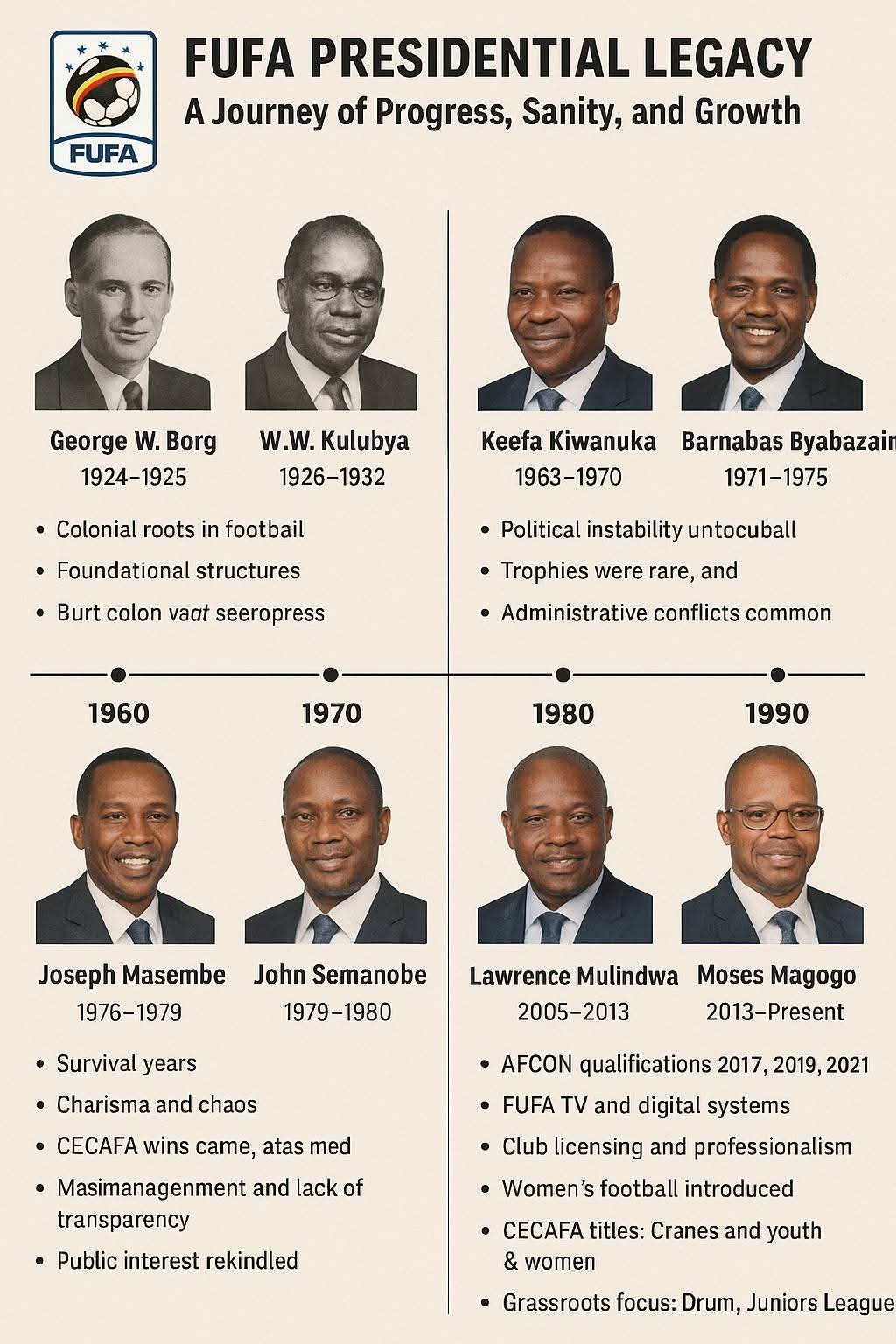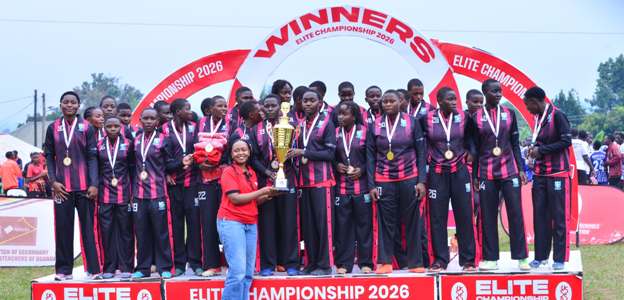Ugandan football has never been a straight road. It has been a winding journey , sometimes smooth, often bumpy, always dramatic. Presidents at FUFA have been both drivers and passengers on this ride, each leaving tyre marks on the red dust of the nation’s game.
The Early Dreamers
The story began in 1924 with royal blessing from Ssekabaka Daudi Chwa II. Men like George W. Borg and W.W. Kulubya drafted football’s first constitution, building structures without professional muscle but with the conviction of pioneers. Football was still a pastime, but at least it now had a compass.

Storms and Stumbles
The 1970s to the 1990s mirrored Uganda itself , unstable, uncertain, uneasy. FUFA presidents came and went, from Keefa Kiwanuka to Barnabas Byabazaire and John Semanobe. Structures collapsed under infighting, the Cranes lost their continental roar, and the game drifted like a ship without anchor.
Charisma and Change
Denis Obua arrived in 1998 with charm but little discipline. Uganda won a CECAFA title, yet the league rotted, and corruption gnawed at the game’s soul.
Then came Lawrence Mulindwa, the fixer. He brought back sponsors, built the Njeru Technical Centre, and piled up CECAFA crowns. But like a sprinter with no endurance, FUFA still lacked the stamina for continental podiums.
Magogo’s Machine
Moses Magogo’s reign since 2013 has been different , clinical, structured, sometimes autocratic, but undeniably effective.
Uganda broke its AFCON curse in 2017 after 39 years and has since become a tournament regular. FUFA TV was born, licensing laws tightened, and women’s football found its footing. Hosting CHAN 2024 and co-hosting AFCON 2027 signal ambition beyond survival.
Yet critics whisper: has Magogo built a system, or merely a machine that runs to his command?
Germany’s Mirror
Uganda need not invent the wheel. Germany, humiliated at Euro 2000, rebuilt from the ground up: academies, coaching pathways, aligned investment. Within a decade, they ruled the world in 2014.
Uganda’s blueprint must echo that:
Grassroots pathways and academies, not just tournaments.
A professional league where coaches, players, and referees thrive.
Contracts and pensions to guard player welfare.
Investors protected by transparency, not politics.
Government as partner, building stadiums and turning sport into tourism.
Beyond Personalities
From Borg’s chalkboard beginnings to Magogo’s broadcast age, FUFA’s story has been one of survival and reinvention. Mulindwa commercialised, Magogo professionalised.
But legacies are fragile if tied only to individuals. The challenge now is cultural, not presidential: to weave football into Uganda’s DNA so that structures outlive leaders.
Germany proved a football nation can reboot and rise. Uganda too can dream. The question is whether football will be treated as more than pastime politics , whether it will finally be seen as a national project worthy of the sweat, money, and patience it demands.
The Verdict
For years, Ugandan football has danced between promise and politics. Each FUFA president has shaped its path, but no single figure has been able to unlock its true potential.
The fans remain faithful, the talent is undeniable, and the passion is never in doubt. What’s missing is structure , a long-term vision that outlives personalities and politics.
Football in Uganda has lived by presidents, but it will only thrive by principles. And just like a 90th-minute chance, the nation now stands over the ball, history watching, the goal wide open.

